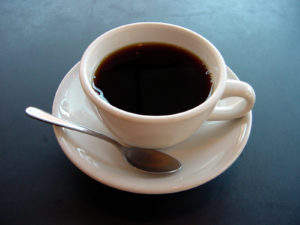 Good news for coffee drinkers. A recent study found that drinking coffee daily significantly lowers the risk of atrial fibrillation. By up to 39% in those who already have atrial fibrillation or atrial flutter! In other words, coffee consumption is protective.
Good news for coffee drinkers. A recent study found that drinking coffee daily significantly lowers the risk of atrial fibrillation. By up to 39% in those who already have atrial fibrillation or atrial flutter! In other words, coffee consumption is protective.
In the well done study, participants (who already had atrial fibrillation or atrial flutter) assigned to the coffee group drank at least 1 cup of caffeinated coffee or an espresso shot daily for 6 months. And the other study group avoided all coffee and caffeinated drinks for 6 months. The results surprised the researchers because it went against medical knowledge, which said to avoid coffee in those with atrial fibrillation or atrial flutter.
That's right - go ahead and enjoy your coffee! It's beneficial!
From Science Daily: Surprising heart study finds daily coffee may cut AFib risk by 39%
New research suggests that drinking coffee may actually help protect against atrial fibrillation (AFib), a common heart rhythm disorder that causes the heart to beat too quickly and irregularly, sometimes leading to stroke or heart failure.
For years, doctors have advised people with AFib and other heart issues to stay away from caffeine, fearing it could worsen symptoms. But a new study from UC San Francisco and the University of Adelaide has found the opposite: participants who drank one cup of caffeinated coffee a day had a 39% lower risk of developing AFib.
"Coffee increases physical activity which is known to reduce atrial fibrillation," explained Gregory M. Marcus, MD, MAS, an electrophysiologist at UCSF Health and the senior author of the study, published November 9 in JAMA. Marcus added that "caffeine is also a diuretic, which could potentially reduce blood pressure and in turn lessen AFib risk. Several other ingredients in coffee also have anti-inflammatory properties that could have positive effects."
To explore whether coffee helps or harms, researchers designed the DECAF study (Does Eliminating Coffee Avoid Fibrillation?), the first randomized clinical trial to test the relationship between caffeinated coffee and AFib. The project was funded by the National Institutes of Health.
The trial involved 200 patients who were regular coffee drinkers and had persistent AFib or a related condition known as atrial flutter, along with a history of AFib. All were scheduled to undergo electrical cardioversion, a procedure that uses a controlled electrical shock to restore normal heart rhythm. Participants were randomly assigned to either drink at least one cup of caffeinated coffee or an espresso shot each day, or to completely avoid coffee and other caffeinated beverages for six months.
At the end of the study, the group that drank coffee experienced a 39% lower risk of recurring AFib episodes. In addition to coffee's potential anti-inflammatory effects, the researchers proposed that those who drank coffee may have naturally replaced less healthy drinks, such as sugary sodas, with coffee instead.
"The results were astounding," said first author Christopher X. Wong, PhD, of UCSF, the University of Adelaide, and the Royal Adelaide Hospital. "Doctors have always recommended that patients with problematic AFib minimize their coffee intake, but this trial suggests that coffee is not only safe but likely to be protective."
